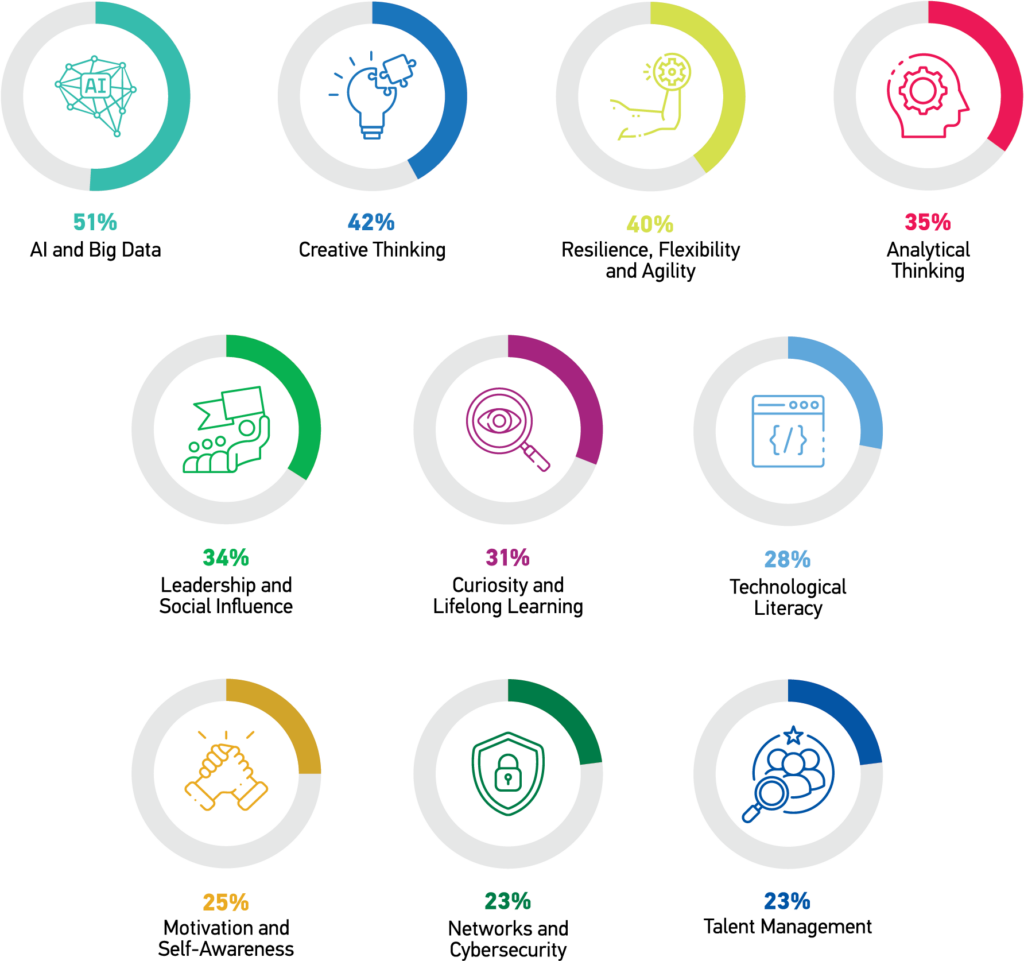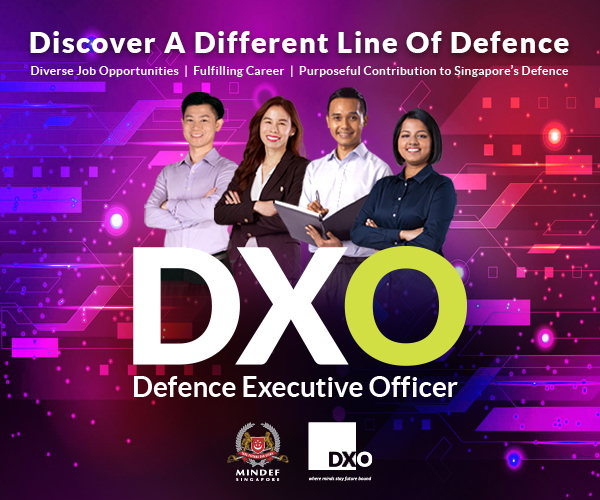In today’s rapidly evolving job market, understanding global hiring trends and the skills required for future success is crucial for university undergraduates. As the world goes through a significant digital transformation, Generative AI (GenAI) stands at the forefront of this change, creating both new opportunities and challenges.
THE RISE OF GENAI IN THE WORKPLACE
Recent insights indicate that approximately 80% of global executives recognise at least one way GenAI can help their employees1. The most significant benefits include:
- Reducing time on mundane but necessary tasks: GenAI can automate repetitive and time-consuming activities, allowing employees to focus on more meaningful aspects of their jobs.
- Increasing productivity: Leveraging AI tools enables companies to streamline processes, leading to higher output and operational efficiency.
- Freeing up time for strategic thinking: With less time spent on routine tasks, employees can dedicate more time to strategic initiatives and creative problem-solving.
Despite these advantages, many companies have yet to fully adopt GenAI, presenting a significant opportunity for those who are ready to embrace it. As the saying goes,
“AI won’t replace jobs… but people who use AI will replace those who don’t.”
PREPARING FOR THE FUTURE: ESSENTIAL SKILLS AND MINDSET
As you step into the workforce, focus on developing skills that align with changing demands of the workplace. Here are some essential skills to focus on:
- AI Fluency: Familiarity with AI technologies is becoming essential in today’s tech-driven landscape. Proficiency with AI tools is no longer a “good to have” but a necessary requirement for many roles. As AI becomes increasingly integrated into business operations, understanding its applications, strengths and limitations empowers individuals to work more efficiently, make informed decisions and stay competitive.
- Emotional Intelligence: As machines are unable to replicate human connections, the ability to empathise and understand others is more important than ever in the workplace. By honing emotional intelligence, individuals can improve communication, build trust, and contribute to a more supportive work environment.
- Collaboration: As workplaces become increasingly interdisciplinary, working effectively with colleagues across diverse functions and fields is essential for driving innovation and achieving cohesive project outcomes. Strong collaboration skills foster open communication and the sharing of ideas, which are critical for tackling complex challenges.
- Adaptability: The ability to quickly adjust to new tools, processes and evolving technologies is crucial as GenAI and other digital technologies continue to advance at a fast pace. Adaptability enables individuals to stay relevant in a shifting work landscape, embrace new responsibilities, and leverage emerging technologies to enhance productivity and problem-solving.
- Critical and Analytical Thinking: AI is only capable of following commands and generating responses based on pre-existing information, making it prone to bias and inaccuracies. The ability to think critically allows us to identify gaps and detect misinformation in AI-generated insights. Mastering critical and analytical thinking also empowers individuals to come up with innovative ways to solve complex problems.
As the workplace continues to evolve, the integration of GenAI presents both challenges and opportunities for the next generation of workers. By staying informed about global hiring trends and focusing on building the right skillset, you can position yourself for a rewarding career in the long run. Embracing a human-centric approach to technology and cultivating a mindset of adaptability and continuous learning will be essential to thriving in this new era.
TIPS TO FUTUREPROOF YOUR CAREER IN THE AGE OF AI
- Embrace lifelong learning
- Develop strong interpersonal skills
- Stay updated on AI developments and trends
- Understand AI’s strengths and limitations
- Build and grow your professional network
- Stay curious and broaden your understanding
SINGAPORE EMPLOYERS’ TOP 10 RESKILLING SKILL FOCUS
Singapore has been a pioneer in AI adoption, with the public service sector initiating chatbot use with Microsoft in 2016. Today, the use of AI is increasingly adopted in many of Singapore’s key industries such as education, healthcare, and manufacturing. It is no surprise that more than half of the organisations surveyed by the World Economic Forum cite AI and Big Data as a primary focus for upskilling and reskilling efforts over the next five years. In addition to technical skills, many of the top skills are soft skills such as creative thinking and curiosity. This blend of hard and soft skills is essential for fostering an agile workforce prepared to meet future demands.
Survey question to employers:
Keeping in mind your current strategic direction, please select the skill clusters on which you are focusing your organisation’s reskilling and upskilling efforts in the next five years.

Source: Future of Jobs Report. World Economic Forum.
https://www.weforum.org/publications/the-future-of-jobs-report-2023/
1Source: Global Talent Trends. Data-driven insights into the changing world of work. LinkedIn. October 2024. https://business.linkedin.com/en-sg/talent-solutions/global-talent-trends







